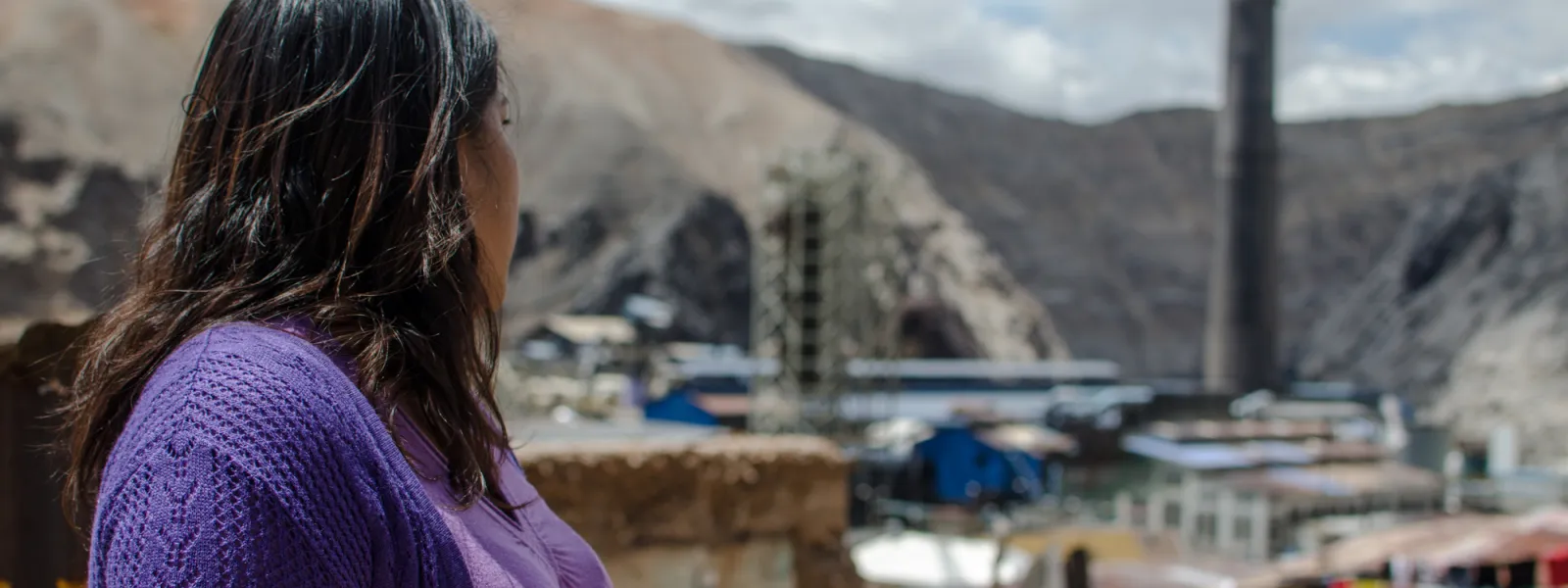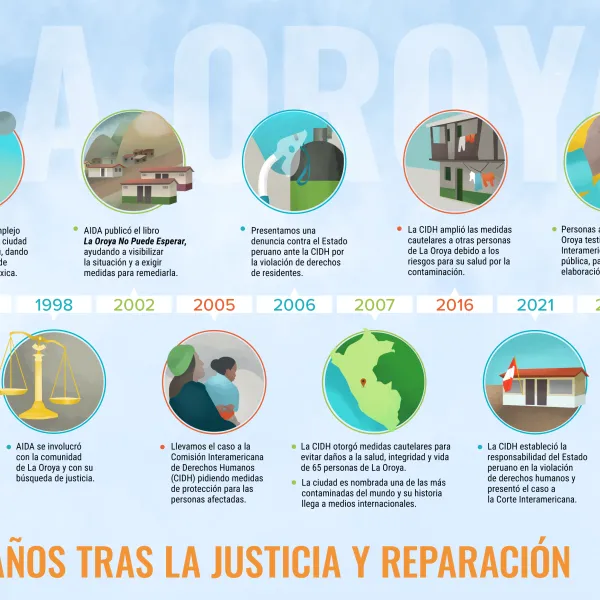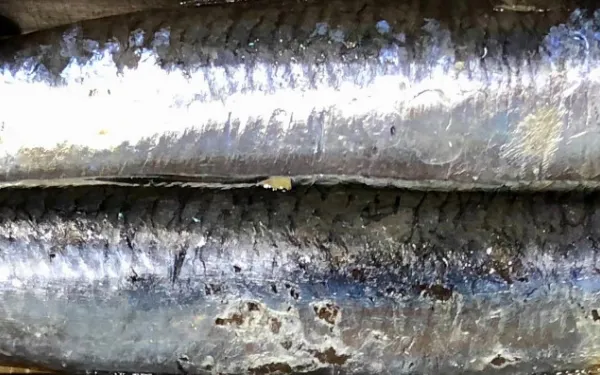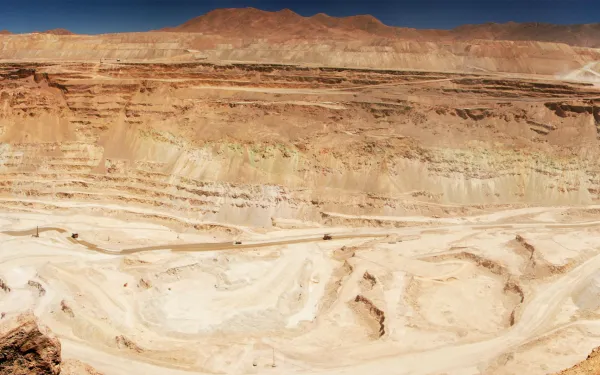
Project
Protecting the health of La Oroya's residents from toxic pollution
For more than 20 years, residents of La Oroya have been seeking justice and reparations after a metallurgical complex caused heavy metal pollution in their community—in violation of their fundamental rights—and the government failed to take adequate measures to protect them.
On March 22, 2024, the Inter-American Court of Human Rights issued its judgment in the case. It found Peru responsible and ordered it to adopt comprehensive reparation measures. This decision is a historic opportunity to restore the rights of the victims, as well as an important precedent for the protection of the right to a healthy environment in Latin America and for adequate state oversight of corporate activities.
Background
La Oroya is a small city in Peru’s central mountain range, in the department of Junín, about 176 km from Lima. It has a population of around 30,000 inhabitants.
There, in 1922, the U.S. company Cerro de Pasco Cooper Corporation installed the La Oroya Metallurgical Complex to process ore concentrates with high levels of lead, copper, zinc, silver and gold, as well as other contaminants such as sulfur, cadmium and arsenic.
The complex was nationalized in 1974 and operated by the State until 1997, when it was acquired by the US Doe Run Company through its subsidiary Doe Run Peru. In 2009, due to the company's financial crisis, the complex's operations were suspended.
Decades of damage to public health
The Peruvian State - due to the lack of adequate control systems, constant supervision, imposition of sanctions and adoption of immediate actions - has allowed the metallurgical complex to generate very high levels of contamination for decades that have seriously affected the health of residents of La Oroya for generations.
Those living in La Oroya have a higher risk or propensity to develop cancer due to historical exposure to heavy metals. While the health effects of toxic contamination are not immediately noticeable, they may be irreversible or become evident over the long term, affecting the population at various levels. Moreover, the impacts have been differentiated —and even more severe— among children, women and the elderly.
Most of the affected people presented lead levels higher than those recommended by the World Health Organization and, in some cases, higher levels of arsenic and cadmium; in addition to stress, anxiety, skin disorders, gastric problems, chronic headaches and respiratory or cardiac problems, among others.
The search for justice
Over time, several actions were brought at the national and international levels to obtain oversight of the metallurgical complex and its impacts, as well as to obtain redress for the violation of the rights of affected people.
AIDA became involved with La Oroya in 1997 and, since then, we’ve employed various strategies to protect public health, the environment and the rights of its inhabitants.
In 2002, our publication La Oroya Cannot Wait helped to make La Oroya's situation visible internationally and demand remedial measures.
That same year, a group of residents of La Oroya filed an enforcement action against the Ministry of Health and the General Directorate of Environmental Health to protect their rights and those of the rest of the population.
In 2006, they obtained a partially favorable decision from the Constitutional Court that ordered protective measures. However, after more than 14 years, no measures were taken to implement the ruling and the highest court did not take action to enforce it.
Given the lack of effective responses at the national level, AIDA —together with an international coalition of organizations— took the case to the Inter-American Commission on Human Rights (IACHR) and in November 2005 requested measures to protect the right to life, personal integrity and health of the people affected. In 2006, we filed a complaint with the IACHR against the Peruvian State for the violation of the human rights of La Oroya residents.
In 2007, in response to the petition, the IACHR granted protection measures to 65 people from La Oroya and in 2016 extended them to another 15.
Current Situation
To date, the protection measures granted by the IACHR are still in effect. Although the State has issued some decisions to somewhat control the company and the levels of contamination in the area, these have not been effective in protecting the rights of the population or in urgently implementing the necessary actions in La Oroya.
Although the levels of lead and other heavy metals in the blood have decreased since the suspension of operations at the complex, this does not imply that the effects of the contamination have disappeared because the metals remain in other parts of the body and their impacts can appear over the years. The State has not carried out a comprehensive diagnosis and follow-up of the people who were highly exposed to heavy metals at La Oroya. There is also a lack of an epidemiological and blood study on children to show the current state of contamination of the population and its comparison with the studies carried out between 1999 and 2005.
The case before the Inter-American Court
As for the international complaint, in October 2021 —15 years after the process began— the IACHR adopted a decision on the merits of the case and submitted it to the Inter-American Court of Human Rights, after establishing the international responsibility of the Peruvian State in the violation of human rights of residents of La Oroya.
The Court heard the case at a public hearing in October 2022. More than a year later, on March 22, 2024, the international court issued its judgment. In its ruling, the first of its kind, it held Peru responsible for violating the rights of the residents of La Oroya and ordered the government to adopt comprehensive reparation measures, including environmental remediation, reduction and mitigation of polluting emissions, air quality monitoring, free and specialized medical care, compensation, and a resettlement plan for the affected people.
Partners:

Related projects

Towards Ecosystem Management of the Peruvian Anchoveta Fishery (in Spanish)
The report, created with the financial support of the Pew Charitable Trusts, contains recommendations for the legal and institutional reforms needed to manage the fishery while caring for the needs of the ecosystem as a whole. The recommendations are designed to ensure that the fishery is managed to provide enough anchoveta for both the commercial fishing industry and the rest of the marine life that depends on it. Download the report (IN SPANISH)
Read more
Guidelines for the Environmental Impact Assessment of Mining Projects
For many communities, water is a scare and therefore valuable resource. Access to it is complicated if rivers, lakes, or other sources are polluted or overused. Water quality often suffers when the impacts of mining projects are not adequately evaluated before the mines are authorized. AIDA’s legal expertise is helping to prevent or minimize mining’s damage on the environment and on the people who depend upon it. In collaboration with scientists and experienced technicians, we’ve prepared a guide detailing the comprehensive analysis that must be completed for any Environmental Impact Assessment of a proposed mining project. The guide will be as useful to authorities as to communities and civil society organizations. This guide recommends that, in all its sections, the Environmental Impact Assessment of a mining project contain detailed information that addresses everything from general aspects of the project to its social and environmental impacts, as well as measures to prevent or mitigate them. Read and download the report (in spanish)
Read moreCOP20 fails to provide certainty on climate finance and human rights
The 20th Conference of the Parties to the United Nations Framework Convention on Climate Change (COP20) was held this month in Lima, Peru, with the goal of drafting a new climate agreement, to be signed in Paris in 2015. The conference, however, concluded with an unimpressive draft agreement that failed in two key tasks: providing certainty about funding to combat climate change, and including human rights protections in climate actions. For AIDA and other civil society organizations, it was important that the Lima agreement lay out a roadmap for how and when governments will fulfill their commitment to provide 100 billion dollars per year by 2020 to finance mitigation activities and adaptation to climate change. "Developing countries need to know with certainty how much money they have and what the source of it will be, so they can plan their fight against climate change," said Andrea Rodriguez, a senior attorney for AIDA. The Conference provided no such certainty. This is evidenced by the decision made on the Intended Nationally Determined Contributions (INDCs), which left out finance and adaptation—key aspects to the countries most vulnerable to extreme changes in climate. The INDCs decision was meant to contain specific information on the scope, format, timeframe and assessment. Instead it included only contributions for mitigation, without stating whether or not they will be compulsory. During the conference, AIDA and global allied organizations encouraged State Parties to ensure the draft of the new agreement include specific language on the protection, promotion, respect for, and observance of human rights in all climate actions. As a result of the collective effort, the Philippines, Mexico, and Ghana made specific calls for the draft and final agreements to include such references. "There is no doubt that climate change interferes with the enjoyment of human rights. The agreement in Lima includes no reference to human rights, but we will work hard to ensure their full inclusion in the Paris agreement, not only in words, but also in deed," said María José Veramendi Villa, an AIDA senior attorney. Yet it was not all bad. AIDA drew attention to the new pledges that had arrived to the Green Climate Fund, which brought its total funding to 10.2 billion dollars. We highlighted the momentum in Latin America that contributed to that achievement, with countries such as Peru, Colombia, Mexico and Panama making the effort to contribute, despite their status as developing countries. "Although all contributions are welcome, it is important to emphasize that the amount collected so far does not yet cover the financing needs of developing countries," Rodriguez stated. The conference also made public the climate finance actions of governmental and nongovernmental actors in the region. The Climate Finance Day organized by AIDA and allied organizations facilitated a dialogue on regional progress in preparing for accessing resources, the increasing involvement of the private sector in fighting climate change, and the conditions that such support requires—legal certainty being one of them. Also that day, civil society shared their experiences with transparency and accountability, which are essential not only to obtain greater resources, but also to ensure their effective use. AIDA reported on the opportunity the Green Climate Fund provides for countries of the continent to improve public participation in the design, development, and implementation of policies and climate projects. Much remains to be done to find effective solutions to climate change. We will continue contributing to the achievement of this goal!
Read more